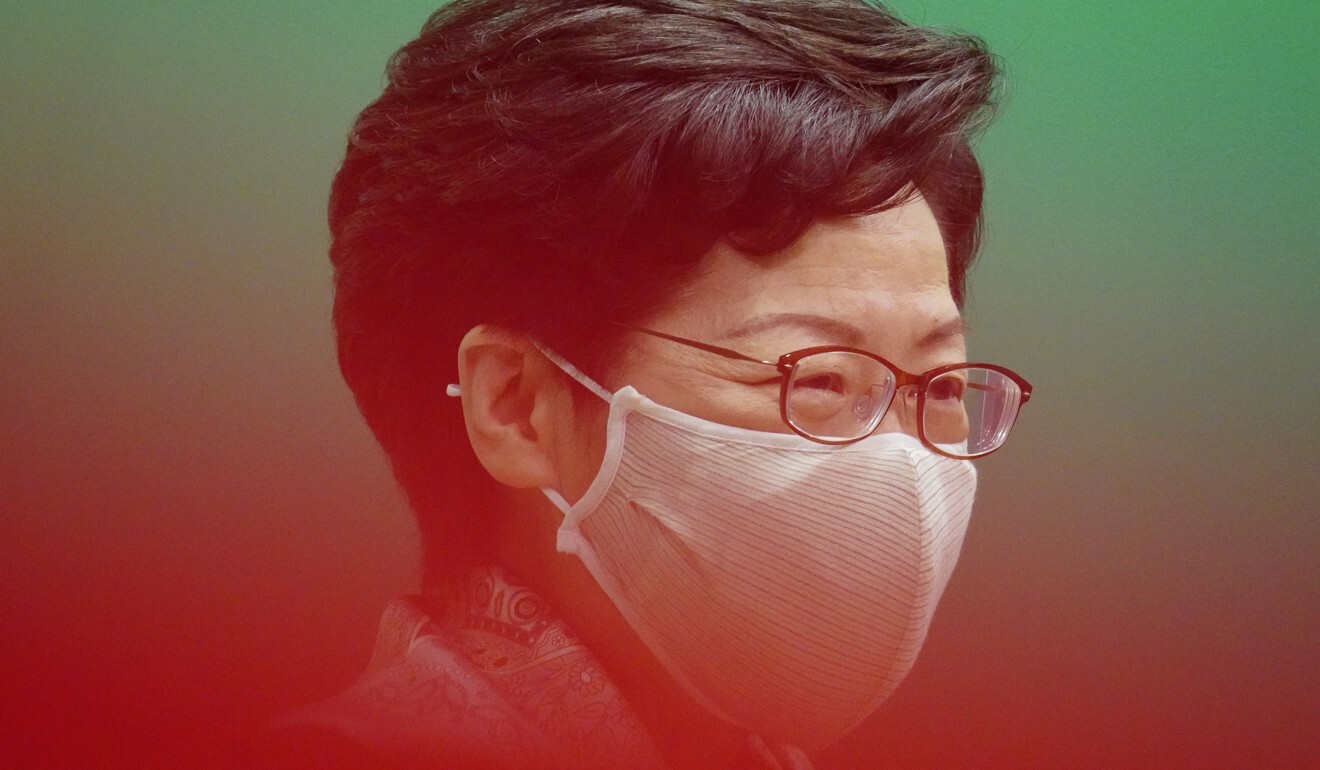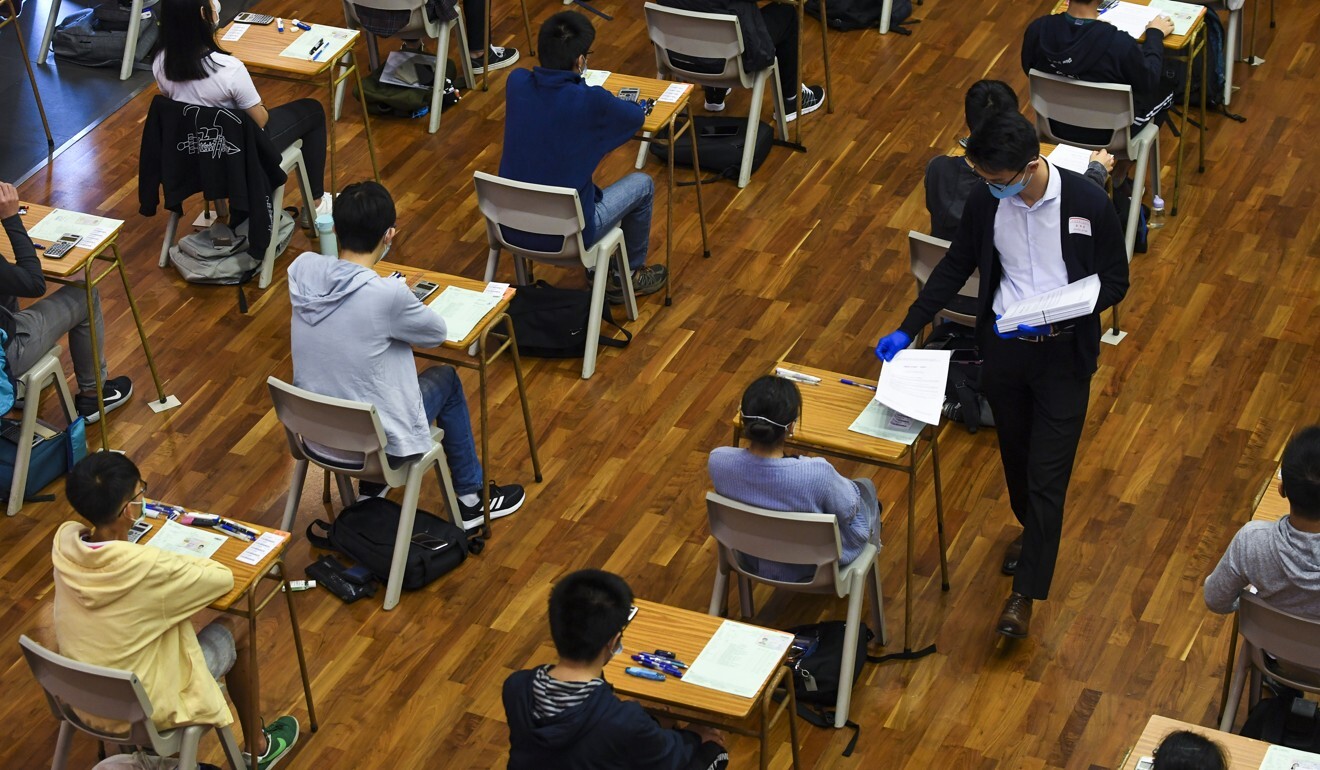
Give Hong Kong exams body room to sort out controversial Sino-Japanese history question using existing mechanisms, says former chief
- Former Hong Kong Examinations and Assessment Authority secretary general Tong Chong-sze says strong public opinions on exam questions are unavoidable
- HKEAA asked to invalidate question on whether exam candidates agreed Japan ‘did more good than harm to China’ between 1900 and 1945

Apart from using their own knowledge to answer the question, students were also required to refer to materials provided - two excerpts adapted from documents from the early 20th century.
The government said the question was misleading, as it had failed to provide information detailing Japan’s invasion of China in the later years of the period, and that there was no room for discussion on the topic given the atrocities committed by Japan during World War II.
The Education Bureau asked the authority, an independent statutory body, to invalidate the question but an emergency meeting of the HKEAA’s governing council on Monday did not reach a decision.
Searching questions for Hong Kong exams body amid furore
But Tong, who in 2012 oversaw the implementation of the DSE exams, which replaced the HKCEE and A-levels, said: “The HKEAA has the mechanism to deal with it. It’s a matter of everyone giving the HKEAA room to do their job.”
He said that when there were problems relevant to the exams including question-setting issues, a “special working group” would usually be formed to look into candidates’ performances and whether adjustments should be made.

He said during his years as authority chief, he had also handled exam-related complaints and criticisms, but the existing mechanisms were sufficient to sort things out. Past questions on Hong Kong politics for subjects such as liberal studies had often sparked debate on whether students were equipped enough to answer them.
“People always have very personal or subjective views about a particular item. I think that is unavoidable. Society as a whole has a right to help scrutinise public exams to make sure that we do the best we can for the candidates. That is quite natural,” Tong said.
“I think the best thing to do is to set up a special working group ... [which] would then look at candidates’ performance in answering. The more information we can collect about the responses, the more it can help make a judgment on whether there is a problem.”
Society as a whole has a right to help scrutinise public exams to make sure that we do the best we can for the candidates
He said if the question were to be invalidated, grading options could include deducting the eight marks for the question and lowering the paper’s total from 60 to 52, or giving all candidates the full eight marks.
“You still have to decide how to compensate candidates in a fair way. And you can’t really make a judgment on that unless you have data [on candidates’ performances],” he said.
Asked if the question was problematic, Tong said he “would not want to make a judgment as an outsider”.
He added: “Even the chief executive mentioned that she thought it was a professional mistake. If it’s a professional mistake, then let the professionals handle it.”

The HKEAA is an independent, self-funded and non-profit statutory body that was established in 1977, with the main role of conducting public exams in Hong Kong. Its council members are either appointed by the chief executive or university heads, or are ex officio members.
But Tong, who is currently vice-president of the Open University, also believed the government would “exercise its powers diligently”.
Hong Kong exam authority ‘must do what chief executive asks’
He said whatever the decision, the authority should consider the best interests of candidates, as they had experienced emotions “like riding a roller coaster” amid uncertainties whether the DSE exams could even go ahead because of the coronavirus pandemic.
“This is a special year, and naturally people are very conscious about the DSE, because people have been working so hard to get the exams going.”

But an insider, who is familiar with the HKEAA’s operations and asked to remain anonymous because of the sensitivity of the issue, said he believed Tong’s suggestions would only be applicable “under normal circumstances”.
He said the public debate now centred on whether there could be “a problematic motive” from those who helped draft the question, rather than technical issues such as mistakes in data or translation mismatches.
Hong Kong international schools reopen after four months of closures
“Before we look at students’ performances ... we should first look at whether the existing mechanisms and the motives of those who help set the question had any problems,” he said. “If the [question and assessment setting] process was not strict enough and if loopholes are found in the system, then it will not be much of a technical concern.”
Asked if any special working groups had been set up to look into students’ performance on the history question, the authority said only that its council would have further discussions on the handling of the question.
About 6,000 candidates will take the Chinese history exam on Thursday morning, and the HKEAA said it had a stringent question-setting mechanism to ensure the papers matched the objectives and assessment goals of the syllabus. This year’s DSE exams end on May 25.
Help us understand what you are interested in so that we can improve SCMP and provide a better experience for you. We would like to invite you to take this five-minute survey on how you engage with SCMP and the news.

